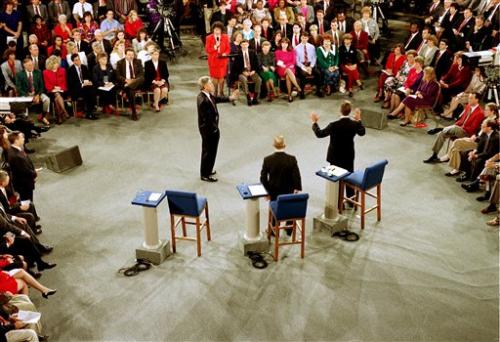Over the past year, debate over raising the minimum wage has converged on 3 points:
o its effect on employment (particularly, on teens)
o its effect on consumer prices
o whether the Earned Income Credit (EIC) is a better solution for the poor
The non-partisan CBO’s February 2014 report, which analyzes the impact of raising the MW to $10.10 by 2016, paints a clear picture on the first point- employment, or jobs lost.
The CBO report states:
. 16.5 million people (10% of total employment) will get a raise*
. revenue will increase by $31 billion
. 19% of the 16.5M, are from families below the poverty line
. 2M of the 16.5M, are teens
. 500,000 jobs could be lost** (0.3% total employment), the majority by teens
So… 10% with higher wages vs. 0.3% with lost jobs.
Not intending to be insensitive on the jobs number, but that is a difference of 33X of people who will gain vs. lose if the MW is raised. Focussing on lost jobs without representing the larger number with pay gains, constitutes the biggest running Rule break on this issue- a giant Sin of Omission.
It is true that, in addition to the negative of lost jobs, the overall economic impact of raising the MW is murky. The CBO says: the deficit will decrease in the short term (good), while the long term is unclear; and factoring in the negative effects of lost jobs, lower business profit, and higher prices, reduces the $31B economic infusion to $2B. But heavily emphasizing the negative side, to the detriment of the positive (as well as any subtleties coloring either), obscures the full impact of raising the MW on the economy and peoples lives.
Other Rule breaks:
On Feb 18, Eamon Javers & Steve Liesman of CNBC, covered the just released CBO report, and though both, technically, represented the main points correctly, they placed emphasis on jobs lost. Mr. Javers glossed over the highly qualitative nuances of the number (see ** note below), and though Liesman didn’t, he characterized it as the second CBO “slap in the face” on jobs (the first being ACA‘s labor disincentive). In addition, they each, seperately, broke the Focus on Issues, Not Politics Rule by predicting political controversy over the number.
True, it was offered as a mere observation by both, but is there anyone left out there who needs reminding of how deadlocked our political process is? Will giving more play to a self-serving strategy for inaction in Washington benefit us? Or will we benefit by having as much light as possible shed on solutions to problems that are sinking our country- in this case, the continued destruction and decimation of the middle & lower classes? This Rule is an important one! Stick to the facts you guys. I looked you both up online- you’re journalists, it’s your job.
* * * * * *
On CNBC, March 6, after guest Ron Unz made a compelling case for raising the MW, Michelle Caruso-Cabrera insisted that “the vast % of people on minimum wage are teenagers”. Kelly Evans should have Corrected that Inaccuracy, coming a full 2 weeks after the report release (she left it to Mr. Unz to do that). A 2009 EPI Report also pegged the % of teenage MW earners low- 20%. It is hard to know why so many (all on CNBC) have made the claim about teens. They should all be called on to Cite the Basis! Even if Caruso-Cabrera intended to say ‘the vast % who will lose their jobs are teens’, a true statement, it would still be Out of Context and misleading since teens comprise only 12% of MWers, and 1.2% of total employment.
Further, Ms. Evans didn’t Ask the Question: Why shouldn’t pay increases go predominantly to adults given the chronic wage stagnation that has helped to hollow out the middle class since the 1980‘s? The CBO says: “employers facing an excess of workers or job applicants tend to favor adults over teenagers”.
To be fair, Mr. Unz did not Cite the Basis for his claim that a higher MW would save $250B in social welfare program spending. A 5 year (2007–2011) Berkeley study of fast-food workers found the cost of public assistance for those families to be $7B a year. Given that and the fact that only 19% of MWers are below the poverty line, it would be nice to learn where that $250B figure comes from.
Finally, consensus on devolving MW decisions to states, though not cited in the CNBC segment, has support from a study described in this NYT article. The case is made for setting MW’s based on regional cost of living standards, citing a 25-30% difference between bigger cities and smaller, more rural ones.
* * * * * *
In many news segments, advocates for the MW cited studies, such as the 1990’s neighboring towns study referenced in these Economist & NYT articles and a University of Chicago study mentioned on Charlie Rose (22 min. in), that showed job losses were minimal. Critics, on the other hand almost never cited specific data to bolster their case, and resorted over and over again to tired, economic supply & demand theory, like guest Lindsey Piegza on CNBC.
This CNBC seg, the NYT article and many others do refer to ‘mixed studies’. But by detailing one side of the argument while only passively acknowledging the other, we, the public, are implicitly asked to ‘trust the press’s judgement’ and assume the other side is insignificant.
On CNBC though, Kelly Evans is a bit more definitive, saying: “in studies that do show harm [to jobs], the harm doesn’t seem to be massive”. To that, Ms. Piegza concedes, but then claims that studies are “tempermental, based on the assumptions” and, referring to the Feds recent Beige Book, adds ~“Calif. business owners are very concerned about the MW hike and having to lay workers off”. Characterizations & anecdotal data like “mixed studies”, and ‘concerned business owners’, are somewhat informative (I don’t doubt the anguish of employers), but these news outlets really need to Cite the Basis for claims of big job losses. Failure to do so perpetuates a False Argument if the data is not there (CNBC’s case?), or masks a biased press if it is (Sin of Omission by NYT?). In any case, laying the data out, pro & con, lays the issue to rest.
Other examples of this pattern include a NYT, Great Divide series piece by Arindrajit Dube (an excellent, comprehensive article on MW), who cites his own collaborative study using 2 decades of data that showed ~”no detectable impact on employment”. Another by Gregory Mankiw, claims ~”many studies suggest a higher MW costs jobs” without citing the studies. Argh!
The one concrete exception came from David Neumark on the Feb. 19 News Hour, who cited his own 2007 survey showing negative impact on jobs. He did not quote statistics from his study (& I did not read it), but he defended it as “empirical” when Thea Lee implicitly Mischaracterized it as “theoretical”, and not “real world”. Even if the bulk of studies show raising the MW has minimal negative impact on jobs, it is still mandatory for them to be fairly represented & characterized. Cutting corners on some data, compromises the integrity of all. It, further, erodes trust and promotes apathy, a scourge of our time.
* * * * * *
The most overwhelming, real life data supporting a MW increase was reported by the San Jose Mercury News on San Jose, CA’s own year-old, $8 to $10, wage hike. The numbers tell the story:
. unemployment was reduced to 5.8% (from 7.6%) ***
. 40,000 MW workers spent $100 million in local economy
. 4,000 new MW jobs in the leisure and hospitality industry were created
. average weekly hours remained stable at 36.5 (vs. 36.9 in 2012)
. overall business growth was 3%
. retail business growth rose to 19% (from 15% in 2012)
. 84,000 new businesses were registered (vs. 75,000 in 2012)
San Jose is in the heart of Silicon Valley, which rebounded from the recession more quickly than many other parts of the country. Such striking economic data more than piques my curiosity on what other factors contribute to this kind of success.
Notes:
* The CBO assumed a threshold wage of $11.50 for additional workers who would also be affected by a $10.10 MW increase in order to maintain employee pay differential.
** The margin of error for jobs lost is +-0.5M, giving a range: negligible to 1M, with a “2/3’s chance” assigned to those estimates.
*** At end of 2013, unemployment rates in CA were: Statewide- 8.3%, East Bay- 6.5%, Santa Clara County- 6%, San Francisco-San Mateo-Marin- 4.8%
The second & third MW issues- the EIC & consumer prices- are continued in Part 2.


